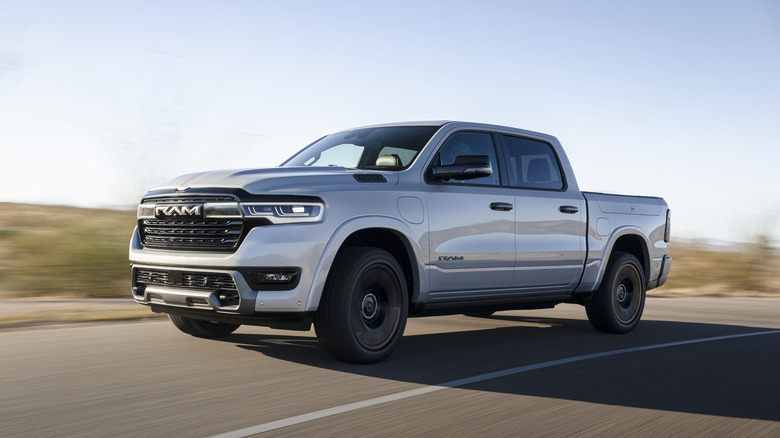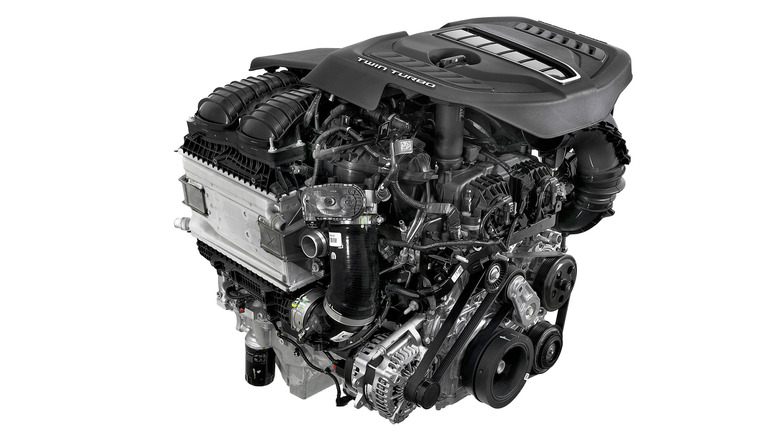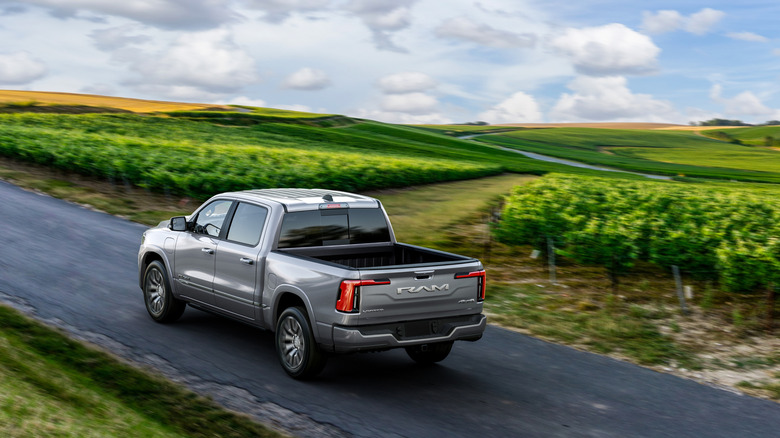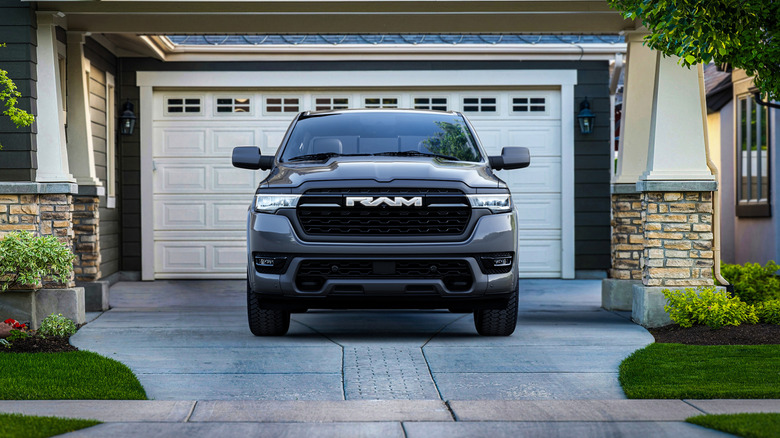How Reliable Is RAM's Hurricane Engine? Here's What Owners Say
Generally, we associate inline-six engines with pretty excellent reliability; for example, the ultra-reliable 4.0-liter straight six in classic Jeep Cherokees routinely reach six-digit mileage counts without breaking a sweat. Other similar engine designs often emphasize similar traits, which is one reason why many big rigs use this configuration. The Hurricane engine found in the new model RAM trucks, however, did not attend this meeting.
While straight sixes are generally thought of as reliable, the Hurricane breaks free from that mold by being a complex, finicky, and generally fairly temperamental engine, with complaints arising on multiple fronts. These include, but are not limited to: The turbochargers, software glitches, thermostats falling apart after as soon as 10,000 miles, and more. However, an equal number of owners are extolling the virtues of the new engine, citing it as particularly durable and not giving any issues. So what's the overall verdict here?
With an equal amount of horror stories and praise, it's difficult to say whether this engine will stand the test of time; all engines, even venerable and respected powertrains like the 5.0 Coyote and LS, had their various teething issues when they first came out.
The Hurricane is no exception; as these issues are discovered, Dodge is likely to patch them up with newer model years and, worst-case scenario, recalls. Therefore, such a review isn't fully representative of longevity, per se, but we can still analyze the inner workings of the Hurricane to see if anything is fundamentally durable or broken concerning its design. So let's dive in and gauge whether or not this engine is as durable as Dodge claims.
The bad news concerning the Hurricane
As mentioned before, even the greatest engines have their issues when they're first launched, and the Hurricane is no exception, with numerous common problems. To begin with, we have the complexity that is the twin turbo system, featuring no fewer than four coolant and oil lines running to and from the turbochargers. Additionally, you have the electronically-controlled wastegate, which relies upon wiring and signals interpreted by the ECU, all of which make for numerous potential failure points in comparison to simpler analogue setups. Moreover, there are reports of the turbos leaking in both the Jeep Wagoneer and RAM trucks.
Another point of contention is frequent thermostat failures being reported. The thermostat functions as a coolant regulator, keeping the engine running in the correct temperature range. As such, failure of this part can result in abnormal temperatures, either running cold or overheating, both of which can potentially lead to damaged internals. This has been such a persistent issue across the general lineup of Hurricane-powered Stellantis vehicles that owners even reported being put on waiting lists for replacement thermostats.
Last are the electrical and peripheral gremlins owners have reported, which range from hoses popping off, to battery failures with many seemingly random error codes in between, preventing the use of 4WD, check engine lights coming on, and so on. Overall, most mechanics and owners generally expect these issues and are diligently reporting them, so there's no guarantee that they'll remain in future model years. Still, it's somewhat discouraging when you find yourself on the side of the road with what's effectively a brand-new truck, breaking out the wrenches and zip-ties to make it home.
But wait, there's good news ahead for Hurricane owners
For one, these engines, despite their initial skepticism and general complexity, are still straight sixes, meaning their internals are likely to be less complicated and time-consuming to service than an equivalent V8; after all, you have two less cylinders spread out over a single head, so there's less failure points already.
Second, the straight six configuration is better suited to trucks, because trucks require more torque. These engines work well in high-torque applications for various reasons, from having a higher piston stroke length compared to equivalent V-engines, to having inherently perfect engine balance, meaning less moving parts and complexities like counterweights.
All this adds up to the real picture of the Hurricane, which is that this may very well be a diamond that's in the process of being cut. Take, for example, one owner who purchased a RAM used as a rental car, collecting about 50,000 miles in the span of just one year, reporting no engine faults whatsoever. That's impressive considering how often rental cars are driven like they're stolen, and there's a high chance that at least one renter gave it full throttle at least once.
Of course, all of this depends on two factors. Firstly is that the trucks themselves aren't hiding any longevity-related gremlins, and that Stellantis can deal with any of the issues like the thermostat and electrical problems as they arise. However, as far as general reliability is concerned, we've certainly seen worse from the company, so hopes remain high for the Hurricane as well; the engine has certainly earned its nickname.
Our methodology
The major concern here is that very few RAM trucks fitted with Hurricane engines have sufficient mileage to generate a representative sample size of long-distance driving, and we're not likely to see many for a while. With these trucks being mostly brand-new, apart from special cases, almost none of them will have six-figure miles as of November 2025. That said, numerous sources exist which cite various short-term issues that crop up, so we focused primarily on those.
We've scoured different groups that cover the Hurricane in all its applications, not just the RAM, to get a more complete picture of how the engine actually functions on an anatomical level to see if there was anything inherently wrong with the design.
Moreover, we've omitted certain issues which do not directly pertain to the engine itself, such as any mechanical failures with the running gear, transmission, transfer case, and so on, but we still considered the ECU and its faults because a bad computer can lead to an engine running improperly.
As for sources, we've hunted down everything from mechanics and industry experts to forum posts and comments, taking into account both experienced professionals and real-world owners of these vehicles to formulate a (mostly) complete picture. Obviously it's not perfect, given how few of these engines have hard mileage on them. As such, always double-check the official channels to see if any new issues have cropped up or were resolved in future model years.



